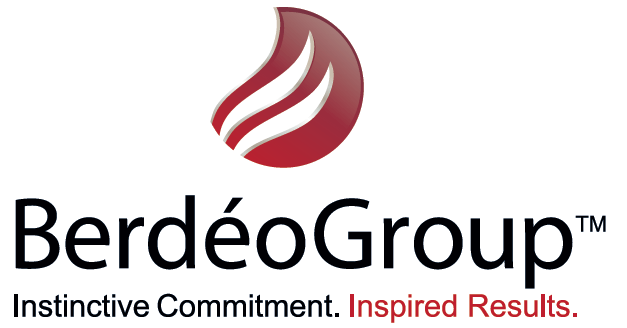Have you ever tried to make someone stop smoking, lose weight or do a digital detox? As you get older and wiser, you learn to not even attempt such things on behalf of others, don’t you? As my husband Glen always says, “I quit smoking at least 200 times. No one could make me do it, and it finally really happened when I was ready — not anyone else.”
These efforts require personal accountability, and there’s the rub. Leadership requires accountability, both in yourself and the people for whom you are responsible. The problem with “holding” people accountable and “making” them accountable begins with that language. This “holding” and “making” is a fool’s errand. Accountable people must have the seeds of follow-through planted and sprouted from within. Accountability can’t be “made” or “held” from the outside. It must be “created” from the inside.
Acknowledging that you cannot climb into someone else’s brain, that people tend to resist obvious attempts at making them accountable, and that some of this process is going to have to be a bit sneaky (in a well-intentioned way), here are techniques to create that elusive accountability in your team.
1. Getting Rid of Emotional Waste
The most common escape hatch for the unaccountable worker is blaming circumstances and other people for a failure to produce results:
“The process is broken.” An accountable person would find a way to fix it and move on.
“He sabotaged my progress.” An accountable person would find a way to proceed tactfully regardless.
“No one has given me clear direction.” An accountable person breaks the big problem down into smaller chunks or finds a way to ask for better guidance.
The important part of these scenarios is the way the person interprets the obstacle. Does he or she feel immediate defeat — or excitement for solving a new challenge and grow? When we are in an emotional spin, we cannot hold ourselves accountable, because we are incapable of moving forward. I can’t say it better than Marcus Aurelius: “It’s time you realized that you have something in you more powerful and miraculous than the things that affect you and make you dance like a puppet.”
Cy Wakeman calls the byproducts of reaction to adversity in the workplace “emotional waste.” To paraphrase from a talk she recently gave, many of us are involved in Lean and Six Sigma to systematically remove waste from standardized processes. How do we get rid of emotional waste? Through good mental process.
Fine-tuning reactions to adversity goes a long way toward creating accountability. Meditation, journaling and other techniques feel hokey in the workplace, because they’re new, they’re hard to measure and they came on so abruptly. Google, Nike, and Apple — some of our most successful companies — got past that obstacle. You should, too, or you’ll be left behind.
2. Creating Consequences
Many common complaints about modern parenting deserve indictment in creating a lack of accountability in the workforce. When two teammates are at odds with one another, do you — as a leader — become an interpersonal handyman? Do you immediately shell out several thousand dollars for requested training when, with a little extra effort, an employee could find some cheaper or free resources? Might it be worthwhile, sometimes, to allow someone to misfire with a customer for the long-term benefits of a valuable, enduring lesson?
There are helicopter parents. Are you a helicopter leader? Just as in parenting, Wakeman claims, “The opposite of personal accountability is learned helplessness and engagement without accountability create entitlement.”
Grit is where the gold is. According to Angela Duckworth, today’s champion for grit, “Grit is having stamina. Grit is sticking with your future day in day out, not just for the week, not just for the month, but for years. And working really hard to make that future a reality. Grit is living life like it’s a marathon; not a sprint.” Sounds like the road to accountability, doesn’t it?
Grit comes from experiencing consequences. Let employees fall. Let them put their hand on that hot burner. Let the mud fly, sometimes, when everyone is harmonious. It is from these experiences that our greatest leaders are molded and accountability and follow-through become instinctive.
Grit comes from experiencing consequences. Click To Tweet3. Transforming Identity Into Trust
Like helicoptering, there is another behavior you might unknowingly exhibit that thwarts nurturing accountable employees. Do you take pride in mantras like, “I get things done” and, “If you want it done right, do it yourself?” Is your ego fueled when you back away from a completed project with arms folded and a smile, saying, “Yeah, I did that?” Well, of course it is, like it is for the rest of us.
But when it comes to leadership and accountability, check that behavior at the door because there is something equally powerful to finishing a daunting project: having someone you admire trust you to finish it in the first place.
The Forbes Coaches Council recently asked me to comment on how managers can build trust with their employees. My thought on the matter was, “Ask your employee for something they would like to own that they don’t think you would feel comfortable having them be accountable for. Then put yourself at ease with turning it over. Set up checkpoint meetings, ask for daily updates or ask to see all their correspondence regarding the matter, but empower them. You’ll be surprised what comes off your plate and how fulfilled they will be.”
Again, avoid getting in that helicopter. You are walking on a knife’s edge here. If you show surprising trust and then walk it back, you create doubt. Tell employees the mission is theirs, and correct their course only when necessary.
We have three solid principles on the table for fostering accountability, and there is a consistent thread here: It’s you, not them. You will have to practice mindfulness to execute these principles. You will have to avoid getting in the helicopter. You will have to muster the trust necessary to let them fly. And it’s good news: You improve them by improving yourself. Everyone wins. Enjoy the victory.
This article originally appeared on training industry : July 15, 2019





